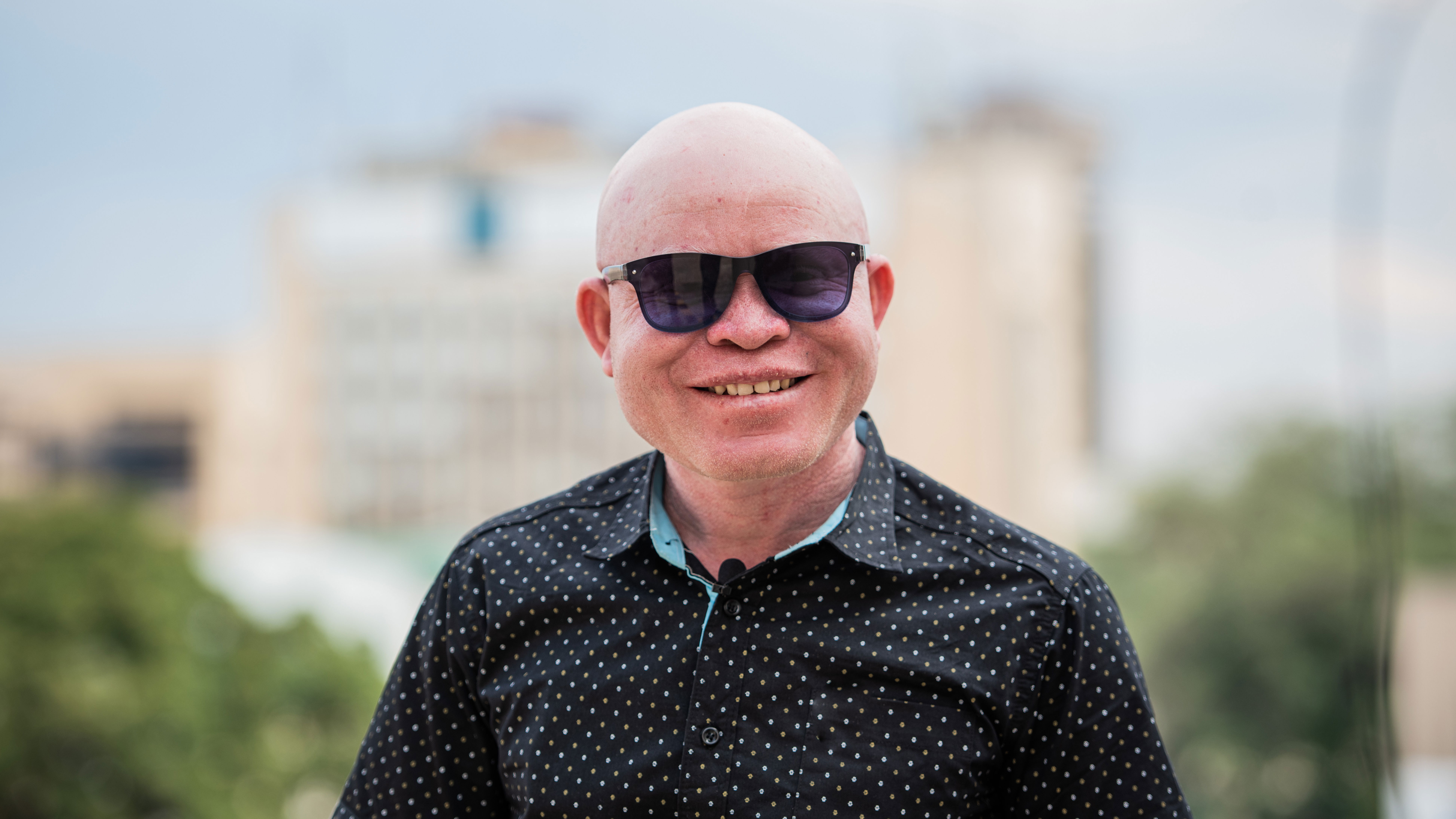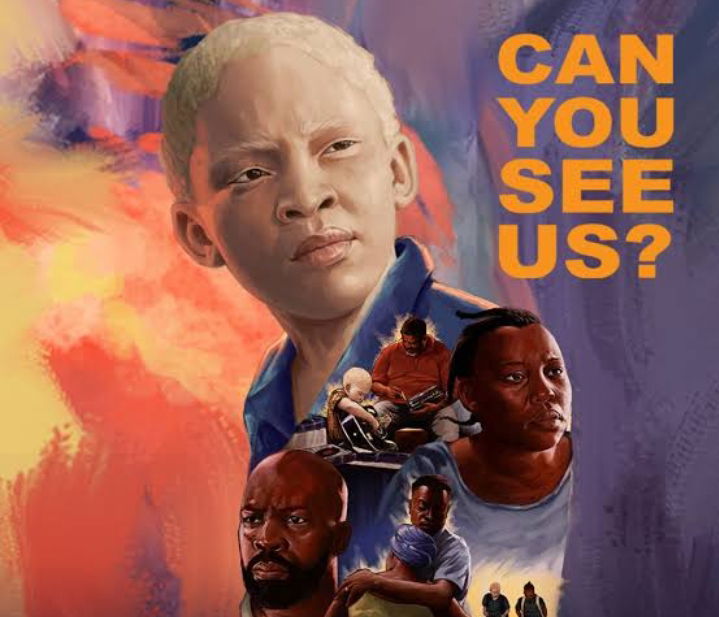JOHN CHITI; MUSICIAN, DISABILITY & ALBINISM ACTIVIST AND INSPIRATION BEHIND NETFLIX FILM "CAN YOU SEE US"
“I wanted to use a special lotion so that I could look like my friends.” That was John’s desire for the longest, a desire caused by discrimination by society. John was practically born into discrimination. As soon as he was born, his father wanted nothing to do with him. So much so that he divorced John’s mother, abandoned them, and went ahead to remarry. The first person who should have shown Chiti unconditional love became the first person who showed him that his difference in skin tone is a source of conditional love. Fortunately, his mother and, subsequently, his stepfather, were there for him. John hails his stepfather for stepping in his father's shoes and for always reminding him that he is as worthy as any other person.

As Chiti drew the curtains on childhood and stepped into adolescence, he grappled with isolation and ridicule from his peers. Most of them segregated him, both in school and at home. His friends were barely a handful. It is at this point that young Chiti contemplated using a special lotion which he then believed would aid him in altering his skin colour to match that of his friends so that he would be accepted by society. Reality struck him at age 15.
One day, as he was walking home with a friend from playing football, a group of assailants began to chase him down, their aim being to mutilate his leg. In Zambia, just like many African countries, it is believed that the body parts of persons with albinism have magical powers. Chiti and his friend began screaming and shouting to which some passers-by heard them and came to Chiti’s rescue. Though he escaped irreversible damage, the unsuccessful attempt left him bleeding on one of his legs. This incident brought the reality closer to home. He was not safe.

The Turning Point: A Musical Gift Unearthed
When he was 8 years,, John’s mother suddenly passed on. His mother’s death meant that he had to relocate and live with his father. It was difficult, especially because he was now aware that his father left because of his condition. He blamed himself as he struggled to fit into the new family. “That destroyed my confidence. I started blaming myself, if I was born black or not born at all, my parents would have been happily married. There was something wrong with me.” He was then sent to boarding school, a move he saw as a saving grace. One day as he was randomly singing during the holidays, a man visiting the neighborhood heard him sing and commended his voice. The man was the first person to affirm his singing and he took the affirmation and ran with it even when his teachers disapproved and told him to focus on his academics.

He held on to his talent and began to pursue his passion for singing. Undeterred, Chiti learnt to play the guitar and joined a band. His journey to stardom took off when he moved to Lusaka, the capital of Zambia. At the age of 17, he recorded his first song, setting the stage for a musical career that would span five solo albums and make him a household name in Zambia. His albums became a sensation, and people began to see him not just as a person with albinism but as a gifted artist as well. Through his music, he began to dismantle stereotypes and prejudices, proving that talent knows no color.
Advocating for Change: A Champion for Albinism Awareness
Despite the adversities he faced, Chiti rose to prominence as a singer and musician in Zambia. With his newfound platform, he became a vocal advocate for disability rights and albinism awareness. In 2008, he founded the Albinism Foundation of Zambia, dedicated to combating discrimination and securing equal rights for individuals with albinism. Chiti's influence extended beyond Zambia's borders. He is now an ambassador for the African Disability Protocol, a framework promoting disability rights across Africa. As a celebrity figure, he has helped normalize the presence of individuals with albinism in society, breaking down stereotypes and prejudices. Also, he is a member of the Zambia Police Service Commission, which is a civilian oversight of the police. With this position, he works to combat the violence and discrimination faced by people with albinism in Zambia.

The Legacy Continues: "Can You See Us?"
Chiti's remarkable life story has inspired a Netflix film titled "Can You See Us?" which now more people know him by. This powerful film has not only raised awareness about albinism but has also influenced change in Zambia and around the world. This movie is a win for the Albinism community in Zambia as the current president of Zambia, Hakainde Hichilema, vowed to combat violence against persons with albinism in the country after attending the premier of the movie.

Through Chiti's journey, the film sheds light on the struggles and triumphs of individuals with albinism, challenging harmful superstitions and prejudice. John Chiti's life is a testament to the power of resilience and determination. From rejection to recognition, he has overcome countless hurdles to become a beacon of hope for individuals with albinism and a catalyst for change in society. As he continues to advocate for disability rights and albinism awareness, Chiti's legacy will undoubtedly inspire generations to come, proving that the strength of the human spirit can overcome even the most challenging of circumstances.